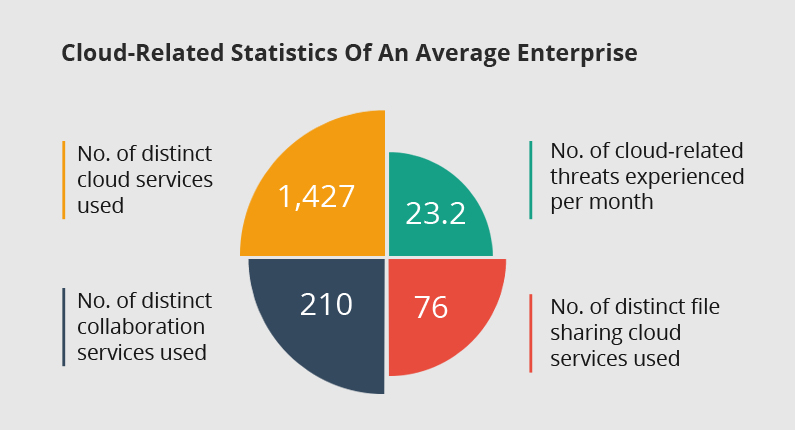

Did you know that 83% of the enterprise workloads will be in the cloud by 2020? At least that’s what a recent survey by LogicMonitor predicts. So, what is it that makes these enterprises take to cloud computing in the first place? Do they only do it to store, manage, and process data? Or are they rather enticed by the benefits that it brings along? Take, for example, the IT costs they usually incur. If, with cloud in the picture, they can cut down on these costs to a great extent, there’s no reason for them not to. The same holds true for inflexibility. Now that the data is accessible anytime, employees don’t have to stick to the nine-to-five grind. Not anymore.
That said, cloud computing is not that easy, definitely not, if you are not familiar with the nuances. Cloud migration calls for technical know-how, and is better left to professionals. They could help you with a smooth transformation, letting you get the most out of cloud computing. A professional or a company engaged in offering cloud migration services can:
- Outline a migration strategy, one that is in tandem with your objectives.
- Offer end-to-end solutions. Starting from consultation to understanding your requirements to finally undertaking the implementation
- Help you achieve greater operational efficiency and IT governance, without trying too hard
Cloud Computing Solutions: What’s In The Offing?
It’s very much possible to take full advantage of cloud computing in more ways than one.
- Software as a Service (SaaS)
- A common delivery model for several enterprise applications
- Applications include, but are not limited to CRM and ERP software
- Requires you to pay for accessing the software and database. The service provider takes care of the infrastructure, and the platforms involved
- Platform as a Service (PaaS)
- Gives you access to a computing platform, one that’s suitable for application development
- You could have an operating system, web servers, or even databases at your disposal. The access to platform may also include the access to programming-language environments
- Infrastructure as a Service (IaaS)
- Off-site support, with access to storage, servers, and virtual machines
- Also suitable for those looking for access to networking resources
With several options to choose from, a company that knows the drill, can help you make an informed choice. Better still, they could handle the technicalities while you focus on your business. Cloud application development services, for that matter, have quite a few advantages, including:
- Whether you want to build, re-platform, or integrate applications, consider it done
- Even migrating legacy applications to cloud architecture is very much possible
- And so is leveraging the cloud for agility, speed-to-market and cost savings
- The best part is that your apps become more scalable

Cloud computing is here to stay. On that note, can you guess the size of the public cloud computing market last year? 130bn USD. It’ll increase for sure. There’s no two ways about it, here’s why:
- Yes, the cloud does reduce IT costs and increase flexibility, but there’s more to it
- It lets you scale up (or down) your operations. You no longer have to buy and install expensive upgrades. Leave them to the cloud computing service provider
- Your business is not at risk, not even when a natural calamity or power failure could have taken its toll. The ability to regain access to your data as soon as possible helps you with business continuity
- Not to mention, your employees become all the more collaborative. Even if based out of different locations, they could team up and do the work in less time
Get Down To Business
Organizations out there are leveraging almost 5 clouds. It’s time you jump on the bandwagon. Write to us at info@suntecindia.com, without further ado. Not sure if our cloud computing solutions are for you? Rest assured, we can customize our solutions according to your individual requirements
